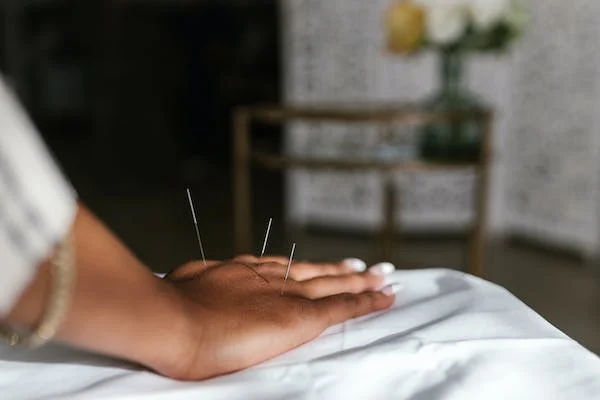Introduction:

Many people are looking for alternative therapies that promote holistic well-being and address both physical and mental health in today’s fast-paced and stressful society. Acupuncture is one such age-old practise that has become more well-liked and well-known all over the world. The sophisticated technique of acupuncture, which has its roots in traditional Chinese medicine, involves inserting tiny needles into particular body sites. In this blog, we’ll delve into the fascinating world of acupuncture and examine its foundational ideas, advantages, and prospective uses in contemporary medicine.
The Experience of Acupuncture:
A typical acupuncture session begins with an initial consultation during which the acupuncturist evaluates the patient’s health issues, medical background, and general state of health. The practitioner will gently place tiny, sterilised needles into predetermined acupoints during the procedure. Contrary to popular belief, acupuncture is typically painless, with the majority of patients reporting a little tingling or sensation at the insertion sites. The needles are typically left in place for a predetermined amount of time to give the body time to react and adjust.
Advantages and Uses:
a. Pain Management: It is well known that acupuncture is beneficial at reducing a wide range of pain, including the chronic pain associated with migraines, arthritis, and lower back pain. The body’s natural pain-relieving systems are activated when acupoints are stimulated, which releases endorphins.
b. Stress Management and Mental Health: Acupuncture can be a useful method for controlling stress, anxiety, and depression. The procedure promotes relaxation and eases emotional stress by focusing on specific acupoints that the body uses to control its nervous system.
c. Improving General Wellness: Acupuncture aims to improve general health as well as treat specific illnesses. It can aid digestion, support energy balance, and stimulate the immune system while also enhancing sleep quality.
Modern Research and Integration:
In recent years, research into the physiological mechanisms underlying the effects of acupuncture has started. According to research, acupuncture may have an impact on a number of physiological functions, including the regulation of neurotransmitters, enhancement of blood flow, and suppression of inflammation. These discoveries have paved the path for the incorporation of acupuncture as an adjuvant therapy for pain relief, fertility assistance, and other conditions into traditional healthcare settings.
Conclusion:
People looking for a comprehensive approach to health and wellbeing are still drawn to acupuncture because of its extensive history and powerful healing potential. Acupuncture gives a distinct viewpoint on the interaction between the mind, body, and spirit as a long-standing, traditional practise. Acupuncture may offer a route to peaceful living and rekindled vitality, whether you’re looking for pain relief, emotional balance, or a boost to your general wellness.
